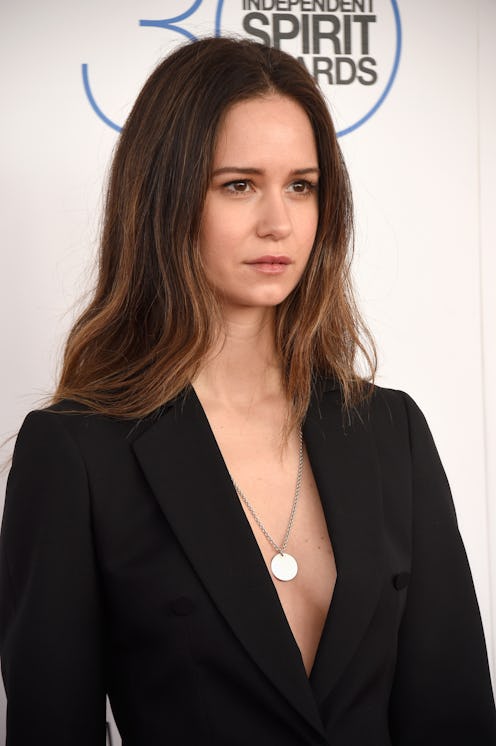Entertainment
How Chrisann Brennan Has Contributed To Jobs' Myth
In the years since Apple founder Steve Jobs's death, numerous attempts have been made in film and writing to chronicle his legacy and get at the man behind the public persona. Jobs's high school girlfriend Chrisann Brennan has been involved with many such efforts — she wrote a memoir entitled The Bite in the Apple: My Life With Steve Jobs, which debuted in 2013, and she went on the record for this year's documentary Steve Jobs: The Man in the Machine. She also figures prominently (as portrayed by Katherine Waterston) in the new biopic Steve Jobs. So what does Chrisann Brennan think of Steve Jobs ?
Brennan has been quite quiet on the subject of Steve Jobs. The film, which is focused on the interpersonal interactions behind-the-scenes at three essential product launches during Jobs's tenure at Apple, extends from 1984 with the launch of the Macintosh computer through to 1998 with the iMac. Brennan and Jobs had split at this point, but she remained a presence in his life — she asserted that her daughter, Lisa Brennan, was also Jobs's daughter, a product of their relationship. He continued to deny this even after a paternity test affirmed he was the father. In one particularly poignant scene in Steve Jobs, Jobs (Michael Fassbender) argues that he did not name the Apple Lisa computer after his daughter.
It appears that Brennan didn't consult on Steve Jobs, but her daughter Brennan-Jobs did speak with Aaron Sorkin during his screenwriting process. Sorkin told Business Insider that, though Brennan-Jobs didn't speak to Walter Isaacson for his authorized Steve Jobs biography, she consented to an interview for the film. But Isaacson's Steve Jobs was purportedly also one of the main influences on Sorkin's screenplay.
"She was able to tell stories about her father that weren’t necessarily flattering stories," he said. "But she would tell the story and then show me how you could see he really did love her." Mother and daughter figure prominently throughout Steve Jobs, though both have been reticent about associating with individual projects based on the Apple founder's life. But according to this year's documentary, which covers a broader scope than Steve Jobs the film, by 2011 the two had a much-improved relationship — which likely contributed to her willingness to speak for Sorkin's film where she wouldn't for Isaacson's biography.
In contrast, Brennan-Jobs's mother spoke on camera for the Steve Jobs documentary for a total of five hours (Brennan-Jobs also discussed her father for the film), but doesn't seem to have had a hand in Steve Jobs the biopic. Both films highlight Jobs's relationships with his ex-girlfriend and his daughter, and his gradual acceptance of Lisa, though using different sources and with differing levels of embellishment.
Steve Jobs, both biopic and documentary, write around Jobs' legacy after his death, using those closest to him as compasses to indicate the traces he left on those around him. But Sorkin told the Wall Street Journal that he had a brief, unrelated interaction with Jobs prior to his death. Three interactions, actually: Jobs first phoned Sorkin to express how much he liked The West Wing, and subsequently reached out to ask Sorkin to tour Pixar and to write a Stanford commencement address. (And, in what seems to be a typical Jobsian approach, he eventually decided to write the speech himself.) While documentary and biopic forms have different impacts, neither would be possible without the input from those closest to the subject — an input that Chrisann Brennan seems to provide judiciously.
Images: Universal Studios (2)
